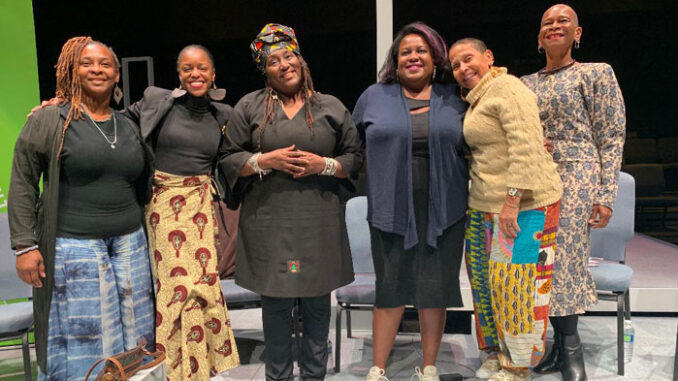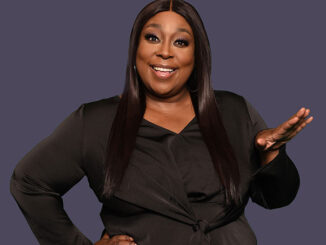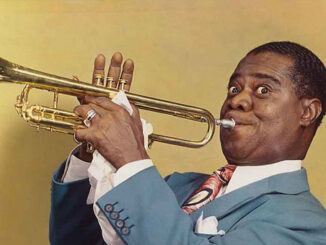
Story and Photos by Zamariah Strozier Data News Weekly Contributor
Local performing artists and activists spoke about the important role of the arts in impacting the community at Tulane University’s Lupin Theater on Friday, Feb. 2, 2023, hosted by the New Orleans Center for the Gulf South (NOCGS).
“There is no empty space and always stories that come before ours begin,” said Lauren E. Turner-Hines, the Artistic Director of No Dream Deferred NOLA, a Community Theatre Program.
“I want to acknowledge my ancestors of the Wolof and Bambara people of Senegambia, whose blood is in the soil and have culturally shaped this place,” Turner-Hines said in reference to her ancestors.
The event titled “Women and Movement: African American Women Affecting the Arts in New Orleans” is part of an ongoing series of Black History month events at Tulane. The women spoke about using art to address social and political conditions. As part of the event, the women shared their personal stories and how it informs the projects they are leading in the community.
“I’m a child of Africa. I’m a child of the drum,” said Ausettua Amor Amenkum, known as Big Queen, member of Washitaw Nation Big Indian Tribe, and the Artistic Director and Founding Member of Kumbuka African Drum and Dance Collective.
“Which is why I take African dance into the prisons,” she said. “You know why I take African dance to the elders because I feel that dance in America, African dance, is taken out of context of how it was used in Africa. It was a part of the community,” Amenkum added.
The artists said that they are working to restore a sense of community much like those in the Black empowerment movements did before them.
“Being a part of the Black Panther Party, they always taught us that we had to educate ourselves and it was very important that we get educated and pass it down, so I did,” said Mariama Curry, the Founder and Artistic Director of Culu and N’Kafu Traditional African Dance Companies. Curry explained that her family history is embedded in the structure of Black culture today. Her father was a civil rights worker with Dr. Martin Luther King Jr. to lead the Southern Christian Leadership Conference adding that later on, she was among the youngest at 14, to join the Black Panther Party at the time.
The panelists shared that the arts are a way to confront challenges currently in the Black community and as community leaders and mentors they engage with systemic issues each day.
“Black women in the arts revolve around racism and gender inequality. That’s just the bottom line, it’s racism and gender inequality,” said Greer Goff Mendy, the Director of Tekrema Center for Art and Culture and Author of “Black Dance in Louisiana, Guardian of Culture.”
“Throughout my younger life, we were not given grants and even now because we were not considered the socially accepted or the good Negro or the stories as I told you about my practice. It’s not predicated on the romance that we often associate with dance in New Orleans, so you’re not going to get funded because it’s not liked,” Mendy said.
And while the arts remain a place where financial support for their work is often short term, they said they will continue to push forward to ensure current generations have access to Black artforms.
“As an artist, you have the right to create,” Mendy said.
Recommended For You.






Be the first to comment